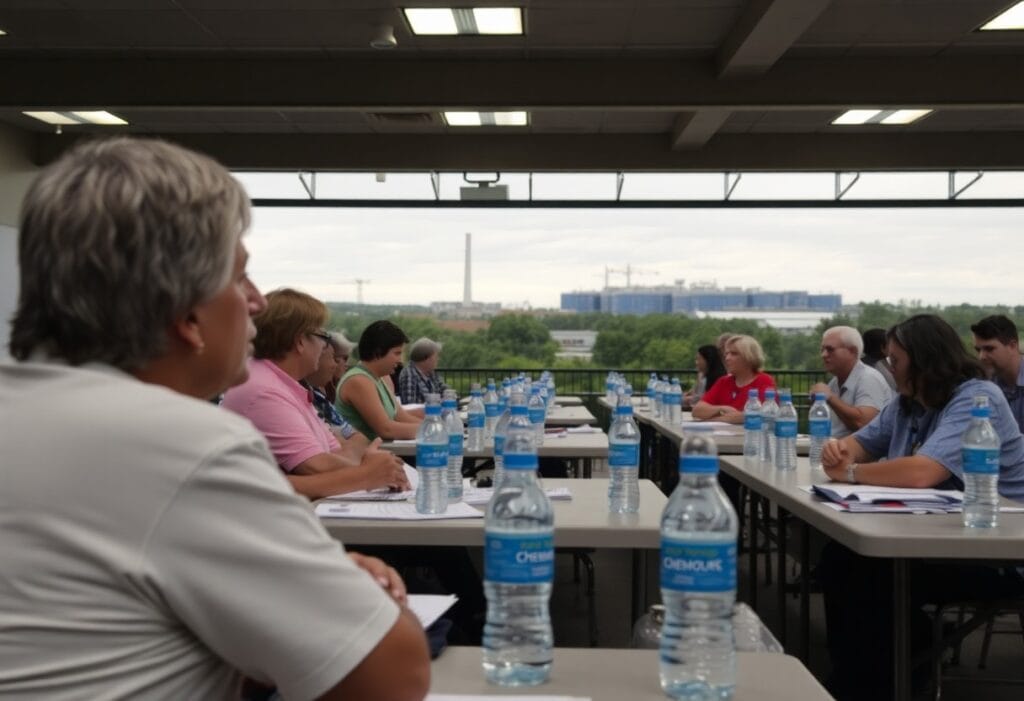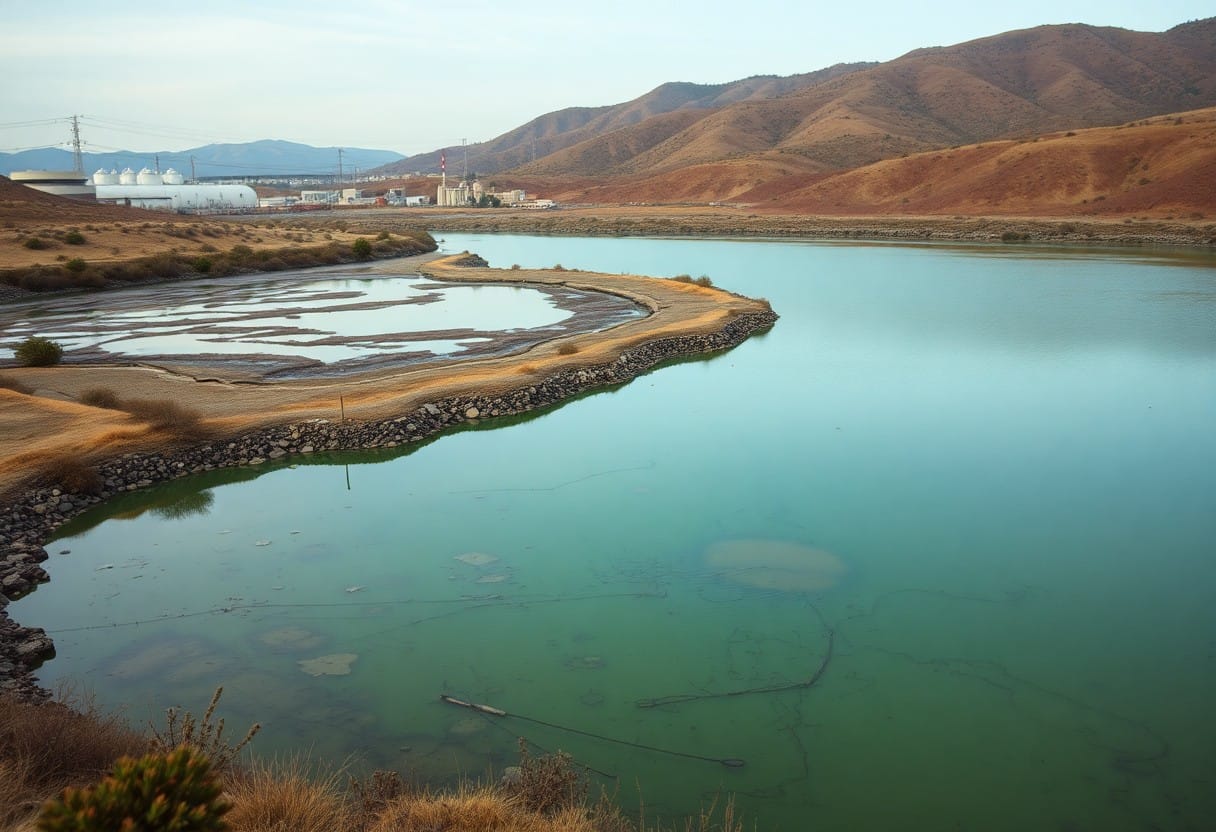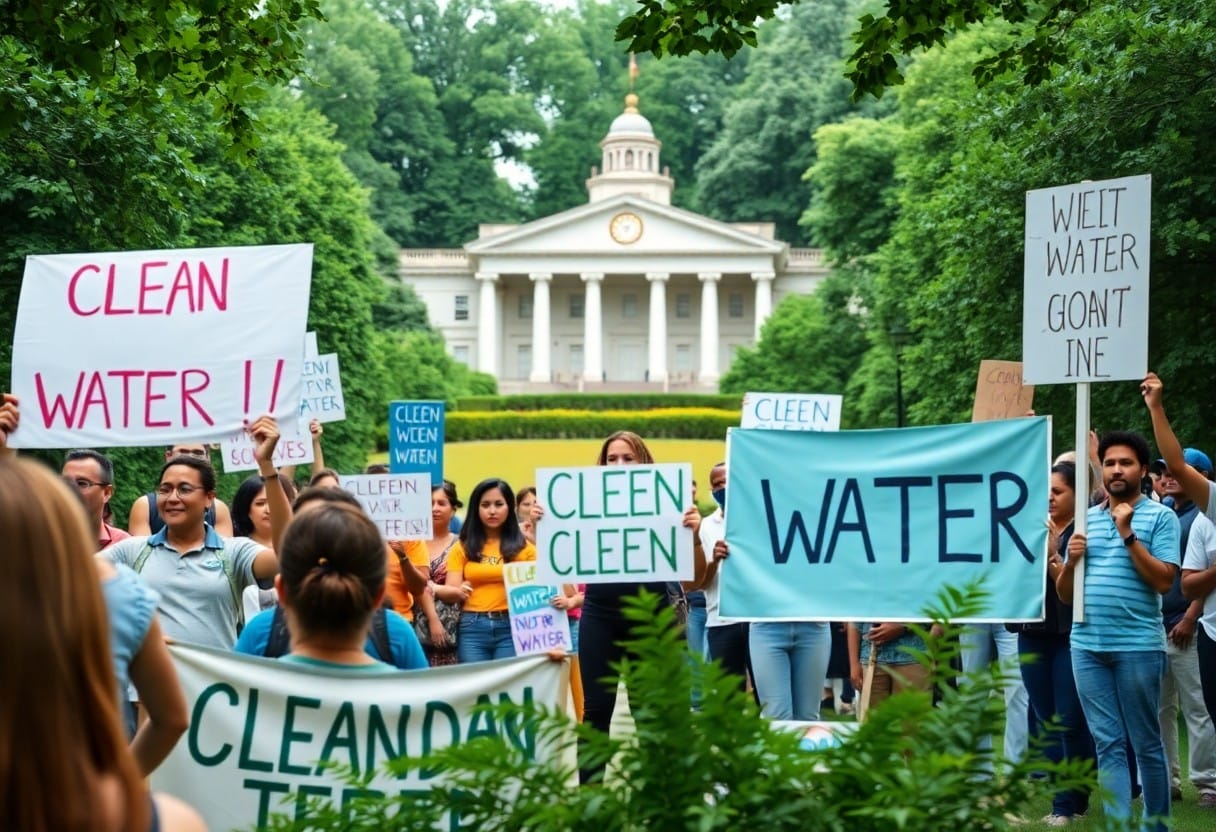Contamination of drinking water can leave you feeling anxious and unsure about your health and safety. In Fayetteville, residents are facing the dangers posed by Chemours’ chemical release into local water sources, which has raised serious concerns about health risks and access to safe drinking water. However, many individuals and community organizations have taken proactive steps to cope with this crisis, from advocating for better regulations to exploring the use of filtration systems in their homes. This blog post will outline effective strategies that you can implement to ensure your family’s safety and well-being amidst these challenges.

Background on Chemours and Water Contamination
To understand the current situation in Fayetteville regarding drinking water contamination, it’s important to examine the role of Chemours, a global chemical company that started its operations in this region. Originally a spin-off from DuPont in 2015, Chemours has focused on producing a variety of chemical products, including those used in agricultural and manufacturing processes. This history positions Chemours as a significant player in the local economy, but it has also resulted in serious environmental challenges that many Fayetteville residents now face.
History of Chemours in Fayetteville
An in-depth look at Chemours reveals its long-standing presence in Fayetteville, which has raised concerns about the safety of your drinking water. Since establishing its operations, Chemours has been at the center of various controversies related to pollution and environmental degradation. Local residents have witnessed the effects of these operations as they have raised alarms over the contamination of water sources, making the need for a comprehensive understanding of the situation more pressing than ever.
Overview of Contaminants
Water safety has become a major concern due to the presence of harmful contaminants resulting from Chemours’ operations. You may have heard about substances such as per- and polyfluoroalkyl substances (PFAS), which have been detected in local water supplies. These chemicals have been associated with numerous health issues, prompting increased scrutiny from both local communities and regulatory bodies.
Even while the situation is alarming, it’s crucial for you to know what specific contaminants are affecting your water supply. Chemicals like PFAS have been linked to serious health risks, including cancer and immune system dysfunction. Awareness of these contaminants can empower you to take action—whether that means advocating for cleaner water measures or seeking alternatives until conditions improve in your community. Understanding the scope and impact of these contaminants is pivotal for safeguarding your health and that of your family. By staying informed, you can better navigate the complexities of water safety in Fayetteville.
Impact on Public Health
Any resident of Fayetteville who has been following the discussions surrounding Chemours’ drinking water contamination is likely to be concerned about the implications for public health. Many are wondering if their tap water is safe for consumption. Recent reports suggest that people near the Fayetteville plant still concerned about tap … highlight the lingering fears regarding potential health risks. When you think about caffeine and heavy metal usage in everyday life, contamination adds a layer of complexity, leaving residents questioning future consequences on public health.
Health Risks Associated with Contaminated Water
About a growing number of studies linking polluted water to health problems can raise anxiety among affected residents. Contaminated drinking water can expose you to harmful substances that may lead to serious issues such as liver damage, immune system disruption, or even cancer. Awareness of these potential risks enables you to make informed decisions about your drinking water and any preventative measures needed to safeguard your health.
Community Experiences and Concerns
For many Fayetteville residents, the unease about water quality goes beyond academic discussions; it is an immediate reality impacting their daily lives. The stories of the community reveal how residents have felt vulnerable and uncertain, with numerous individuals reporting changes in their health after exposure to contaminated water sources. The emotional toll has been significant, highlighting the need for reliable information and support from local authorities.
Experiences shared by your neighbors illustrate the community’s heightened sensitivity towards health risks. Many residents express feelings of anxiety stemming from their daily water use, from cooking to cleaning. Reports of increased illnesses among families in proximity to the Chemours facility have fueled concern over long-term effects. Amidst this uncertainty, residents often band together to advocate for clean drinking water and greater transparency from both Chemours and local governing bodies, hoping for a resolution that prioritizes health and safety.
Community Response and Actions
Some Fayetteville residents have united to address the troubling contamination of drinking water linked to Chemours. Community meetings, informational sessions, and public forums have become commonplace as you seek to educate yourselves about the situation and explore options for remediation. Local activists are determined to raise awareness about the health risks associated with these pollutants, as highlighted in a recent article, It’s terrible’: Fight for clean water in Cumberland County …. The commitment to not only discuss concerns but also to push for change is evident in the collective efforts happening throughout the community.
Grassroots Movements and Activism
Response to the contamination crisis has spurred an increase in grassroots movements. Local organizations have mobilized residents to participate in rallies and campaigns aimed at demanding accountability from Chemours and greater transparency from local authorities regarding water safety testing. You may find yourself connecting with these groups, which have organized petitions and outreach efforts to ensure that your voices are heard. The camaraderie among residents fosters a sense of hope that collective action can lead to improved environmental policies and greater protections for your community.
Local Government Initiatives
By taking proactive steps, your local government is seeking to address the concerns surrounding drinking water safety. Officials are working to implement new regulations and enhance monitoring protocols to ensure that contaminants are identified and dealt with swiftly. Additionally, there are programs being developed to provide residents with resources such as water testing kits and education on water filtration options, aiming to empower you to take control of your water quality.
And while these initiatives may not fully resolve the contamination problem, they represent a positive shift toward holding polluters accountable and prioritizing public health. The local government is also collaborating with environmental agencies to create transparency surrounding water quality reports, which is vital for you to stay informed about any changes that could affect your family’s health. Through these combined efforts, a more robust framework for protecting your drinking water is slowly being established.
Legal and Regulatory Efforts
Despite the challenges posed by the contamination of drinking water in Fayetteville, residents have mobilized through both legal channels and regulatory frameworks to address the issue. These efforts aim to hold accountable those responsible for the contamination and to push for stronger protections for your community. As the situation continues to unfold, understanding the nature of these legal actions can provide insights into how the community is seeking justice.
Lawsuits Against Chemours
Any resident directly affected by the contamination has the right to pursue legal action against Chemours. Numerous lawsuits have been filed alleging various claims, including negligence, property damage, and personal injury. These cases highlight the potential health risks associated with chemicals like PFAS, leading many to seek compensation for medical expenses and the long-term effects of exposure. If you find yourself in a position to join these lawsuits, it’s vital to stay informed about your rights and the deadlines for filing claims.
State and Federal Regulations
State and federal regulations are evolving to address issues related to drinking water contamination, creating a framework for how industries like Chemours can operate. State officials have been working to establish stricter guidelines for PFOA and PFOS levels in drinking water, while federal agencies are examining existing chemical policies to ensure public safety. The collaborative efforts at both levels of government aim to provide a safer environment and prevent future contamination incidents.
Due to increased awareness and advocacy from residents, regulations are aligning more closely with public health needs. This response not only calls for better monitoring practices but also emphasizes the importance of transparency regarding chemical usage and disclosures. You should remain engaged with local government initiatives, as these regulations could serve as a powerful tool to compel Chemours to implement necessary safety measures and remediate contamination impacts effectively.
Solutions and Alternatives
Filtration and Access to Safe Water
Your primary concern may be ensuring that you and your family have access to safe drinking water. Across Fayetteville, residents are turning to various filtration systems that can effectively reduce or eliminate contaminants associated with Chemours. These systems range from simple pitcher filters to more advanced reverse osmosis units that can be installed directly at your sink. Investing in a reliable filtration system can provide peace of mind knowing that you are taking proactive steps to safeguard your health. Additionally, local initiatives may be in place to help provide access to clean water through community distribution points or subsidies for home filtration systems.
Your efforts to ensure safe drinking water should also include staying informed about local water testing results. Across various neighborhoods, community groups often organize testing events, allowing residents to check for contaminants in their own water supply. By participating in these initiatives, you not only protect your family, but you also contribute to a broader awareness of water quality issues affecting Fayetteville as a whole.
Long-term Remediation Strategies
By focusing on long-term remediation strategies, you can be a part of a collective effort to address the root causes of water contamination in Fayetteville. Local environmental groups and government agencies are exploring options such as soil remediation and the development of natural filtration systems in surrounding areas. These strategies aim to mitigate the pollution’s impact on local groundwater sources, ultimately reducing the risk of contamination re-entering your drinking water. Participating in discussions and supporting these initiatives can amplify your voice and help lead to effective solutions for the community.
Indeed, the challenges of water contamination demand a comprehensive approach to remediation. Innovative solutions such as bioremediation, which harnesses natural processes to break down contaminants, are gaining traction. Support for research initiatives and active participation in community meetings ensure that Fayetteville residents can influence the development of policies aimed at creating a safer environment. By staying engaged, you contribute not just to your own family’s well-being but also foster a collective resilience against future contamination crises.
Community Education and Awareness
Many residents of Fayetteville have recognized the importance of staying informed about the issues surrounding Chemours’ drinking water contamination. To address this urgent concern, community leaders have launched on initiatives to foster education and awareness among the population. Engaging with local experts, activists, and concerned citizens, they have organized workshops and town hall meetings to discuss the implications of the contamination, ensuring that you and your family have access to pivotal information about health risks and protective measures you can take.
Informational Campaigns
Between community flyers, social media outreach, and informational booths at local events, various campaigns have launched to empower residents with knowledge about the effects of chemical exposure and water safety. These campaigns focus on disseminating important information quickly and effectively, allowing you to understand both the current situation and the steps being taken to remedy it. Moreover, they aim to facilitate open discussions, enabling you to voice concerns and ask questions that matter to your well-being and that of your community.
Resources for Residents
Education plays a significant role in mitigating the challenges posed by drinking water contamination. To aid in this effort, numerous resources are available for residents seeking guidance and assistance. You can tap into local environmental organizations, state health departments, and educational institutions that offer workshops and public forums about water testing, contamination levels, and health implications. Additionally, support groups and hotlines provide direct assistance, enhancing your understanding of the risks and available measures for ensuring safe drinking water.
Understanding the resources at your disposal is vital for navigating the complexities of this situation. Community-driven initiatives, such as educational webinars, and local library resources, provide an invaluable platform for you to access factual information. By leveraging these resources, you can stay informed about the latest developments, learn practical safety measures, and connect with community members who share similar concerns, empowering you to advocate for a safer environment for your family and neighbors.
Final Words
With this in mind, it is imperative for you, as a Fayetteville resident, to stay informed about the situation surrounding Chemours’ drinking water contamination. You have the power to take proactive measures to protect yourself and your family, whether by using filtration systems, opting for bottled water, or engaging with local advocacy groups pushing for stricter regulations and accountability. Your awareness and involvement can contribute to the broader community effort to hold responsible parties accountable and work towards a long-term solution for safe drinking water.
Moreover, adapting to these circumstances means keeping an open line of communication with local authorities and health professionals. Engaging in community forums can help you exchange valuable information with your neighbors and support one another during this challenging time. By pooling resources and knowledge, you can ensure that you and your community are better equipped to navigate the impacts of water contamination, fostering resilience and unity as you face the challenges ahead.


















